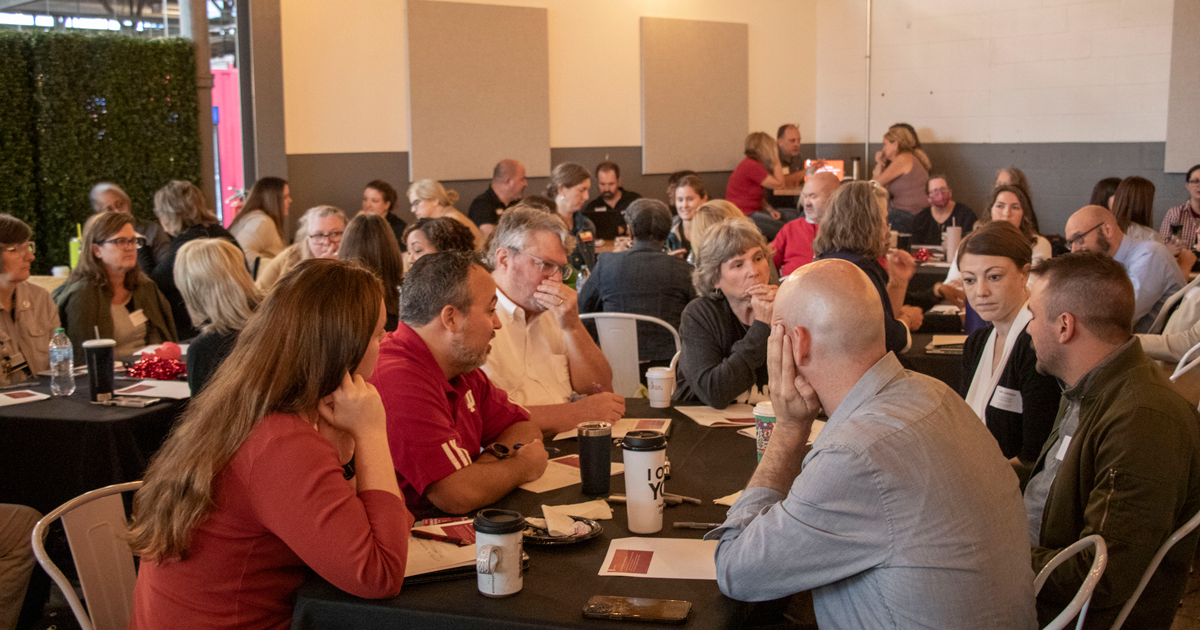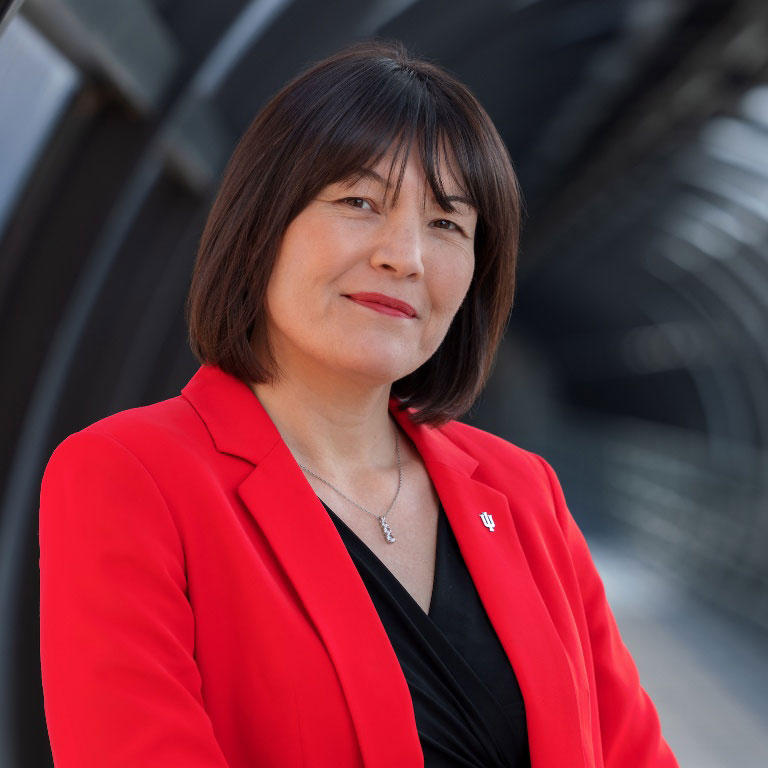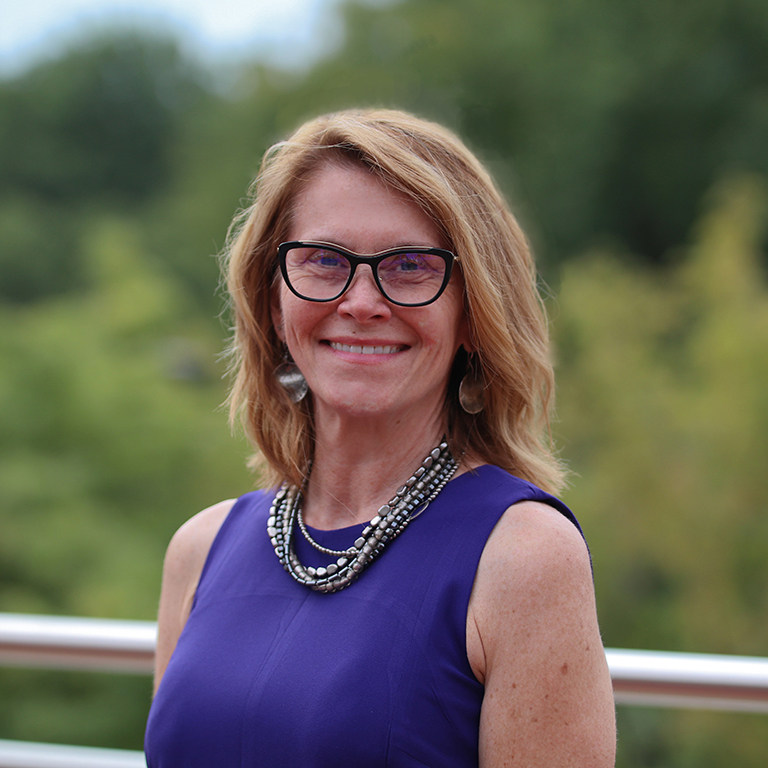A focus on collective student success
The work team is dedicated to helping IU Indianapolis undergraduate students of all majors thrive academically. Since its inception, the team has aimed to gain student input before implementing any changes to maximize widespread effectiveness.
“Each meeting, the team meets to discuss what each person has contributed, what we have learned, and our next steps, so there is continual movement toward our goals built into the strategic doing process,” Sheeler said.
The team remains fervent in prioritizing students throughout its process. Efforts extend to department collaborations to give a group of students a chance to complete a design thinking activity related to general education and a survey allowing any student to share opinions regarding what the general education program could include in the future.
“We don’t know what the core curriculum is going to look like yet, but we have a lot of good ideas, and our campus’s heart for innovation, experiential learning, and student success is going to guide us in the right direction,” Downey said.
Once the work team has settled on proposed changes, the full UAC will convene to discuss and shape the final proposal. Ultimately, the proposal will be disseminated among faculty and staff across campus to ensure input before the final version is placed to a faculty vote.
Looking to the future
The refreshed core curriculum is set to launch in fall 2026 and will be closely monitored by the UAC to ensure the new adjustments are valuably serving students. Depending on the work team’s final plan, a larger promotional rollout to inform students about the new changes and their intended impact may also be employed. Enrollment data and success rates in newly built courses will also be scoped to measure effectiveness.
Downey and Sheeler remain faithful in the work team’s efforts in building a higher education environment that forges powerful impact for all students’ educational journeys.
“These are individuals committed to ensuring a strong, meaningful, and relevant undergraduate curriculum,” Sheeler said.
Downey agreed, placing an emphasis on both the team’s appetency to serve students and their belief in the transformative power of higher education to change lives and communities.
“We are in this because we have a passion for the potential of education to make life better for all,” Downey said.




